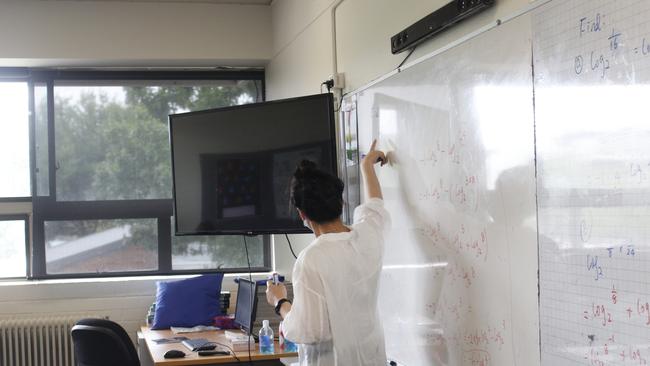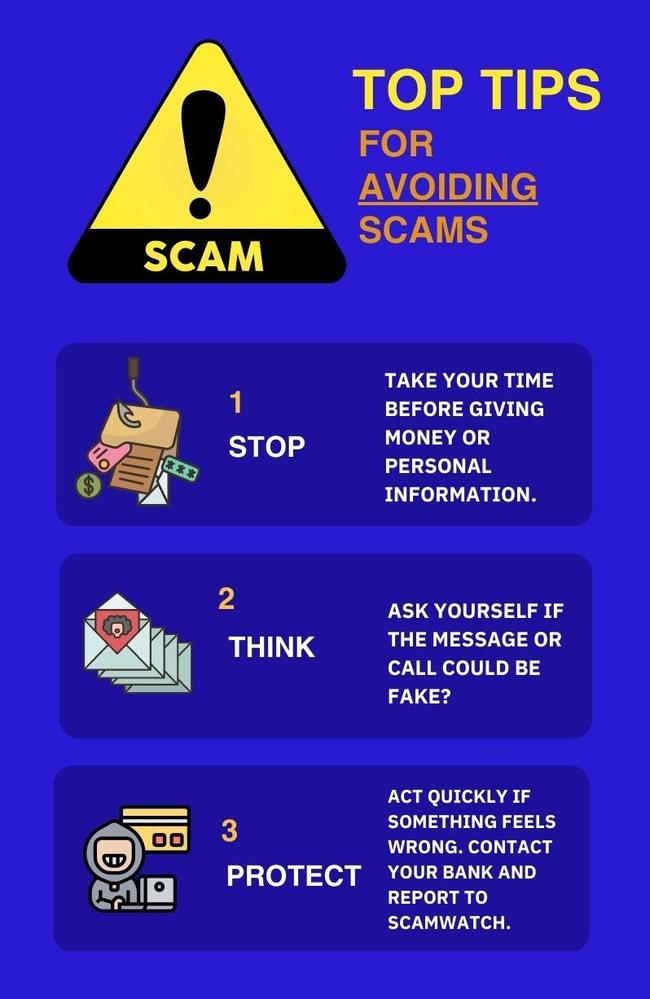85,000 students and staff at elite Australian schools at risk of phishing campaigns
Schools across the country are at risk of being attacked and stand to lose thousands of dollars and their privacy. Here is what you can do to protect yourself.

National
Don't miss out on the headlines from National. Followed categories will be added to My News.
EXCLUSIVE
More than 85,000 private school students and staff across the country are at risk of being attacked by hackers, a new report has found.
Leading cybersecurity company Proofpoint said out of the 100 independent schools analysed, alarmingly more than half are vulnerable to email-based phishing attacks.
Proofpoint’s senior director Steve Moros said cybercriminals find schools easy to exploit because students are most likely to fall for phishing scams.

He said cybercriminals would be after sensitive information such as addresses, contact details, medical records and staff’s bank and credit card information withheld inside a school system.”
“No matter their size or number of students enrolled, schools remain an attractive target for scammers due to the large and diverse amount of data they store,” Mr Moros said.
“It’s incredibly concerning to see that only nine out of the 100 schools analysed are protected from being impersonated by cybercriminals, especially following one of the biggest years for scams and data breaches in the nation’s history.

“Only when these schools start shoring up their cybersecurity defences will they ensure that malicious emails can’t compromise their data.”
Half a billion dollars was lost to scams and hacks last year in Australia, while 90 per cent of organisations experienced at least one successful email-based phishing attack, with almost half reporting direct financial loss.
And this number is set to balloon as chat bots, deep fakes and other artificial intelligence (AI) tools designed to alleviate workloads are being used to supercharge malware creation and impersonate trusted people.
However, it’s not just schools at risk of falling into the hands of hackers.

In just three seconds, cybercriminals are now stealing your voice through AI which is fuelling a rise in online scams, according to a new report by computer security company McAfee.
The research found 62 per cent of Aussies have either lost, or known someone who has lost, between $500 to $5,000 dollars to AI voice scams, while 43 per cent of 18-29 year olds share their voice data online or in recorded notes at least once a week through social media and voice notes.
McAfee’s APAC general manager for product growth Tyler McGee said scammers are using three second voice snippets to mimic your closest family and friends’ vocabulary to “produce a believable scam”.
He said the AI technology clones voices and then sends a fake voicemail or voice note to the victim’s contacts pretending to be in distress including someone's car has broken down, the phone has run out of battery or they’re travelling abroad and have had their wallet stolen.
“What we are seeing here is the evolution of the famous “Hi Mum” texting scam which the ACCC reported that $7.2 million has been stolen from at least 11,100 victims in Australia,” Mr McGee said.
“The reality is these tools are cheap and readily available online and they only require a basic level of experience and expertise to use. AI is lowering the barrier of entry for cybercriminals and with AI becoming more sophisticated, this is only going to get worse.
“These scammers work by preying on people's emotions and create urgent situations so that people don’t have time to question whether it is really their loved one on the call.
“The more accurate the clone, the better chance a cybercriminal has of duping somebody into handing over their money, and with these hoaxes based on exploiting the emotional vulnerabilities inherent in close relationships, a scammer could net thousands of dollars in just a few hours.”
HOW TO AVOID SCAMS:
- Set a verbal ‘codeword’ with kids, family members or trusted close friends that only they could know. Make a plan to always ask for it if they call, text or email to ask for help, particularly if they’re older or more vulnerable.
- Always question the source – If it’s a call, text or email from an unknown sender, or even if it’s from a number you recognize, stop, pause and think. Does that really sound like them and something they might ask? Hang up and call the person directly or try to verify the information before responding and certainly before sending money.
- Think before you click and share – Who is in your social media network? Do you really know and trust them? Be thoughtful about the friends and connections you have online. The wider your connections and the more you share, the more risk you may be opening yourself up to that your identity may be cloned for malicious purposes.
More Coverage
Originally published as 85,000 students and staff at elite Australian schools at risk of phishing campaigns





